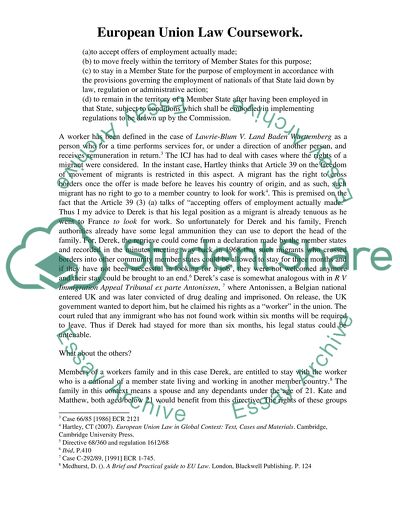Cite this document
(“European Union Law Essay Example | Topics and Well Written Essays - 2000 words - 2”, n.d.)
European Union Law Essay Example | Topics and Well Written Essays - 2000 words - 2. Retrieved from https://studentshare.org/law/1510268-european-union-law
European Union Law Essay Example | Topics and Well Written Essays - 2000 words - 2. Retrieved from https://studentshare.org/law/1510268-european-union-law
(European Union Law Essay Example | Topics and Well Written Essays - 2000 Words - 2)
European Union Law Essay Example | Topics and Well Written Essays - 2000 Words - 2. https://studentshare.org/law/1510268-european-union-law.
European Union Law Essay Example | Topics and Well Written Essays - 2000 Words - 2. https://studentshare.org/law/1510268-european-union-law.
“European Union Law Essay Example | Topics and Well Written Essays - 2000 Words - 2”, n.d. https://studentshare.org/law/1510268-european-union-law.


